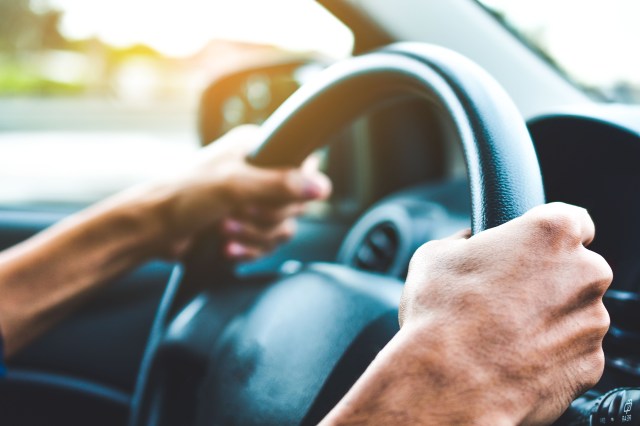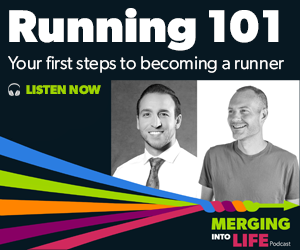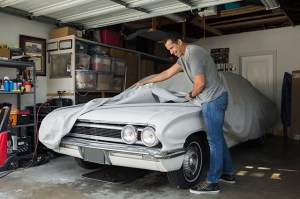After two years of navigating the pandemic, stress and anxiety might feel like just a part of life. But feeling anxious about everyday activities like leaving the house, commuting through heavy traffic or driving in certain conditions doesn’t have to dictate your daily habits.
Driving anxiety can make life difficult at the best of times and avoiding stress surrounding air travel could keep you from going to places you want to go. But if you struggle with travel anxieties, you’re not alone.
We unpack several causes and types of anxiety and how to overcome driving anxiety and fear of flying.
Anxiety 101
Nearly 20% of American adults live with an anxiety disorder, according to the National Alliance on Mental Illness. This mental health condition has many possible symptoms, including:
- Persistent feelings of dread.
- Difficulty relaxing.
- Trouble concentrating.
- Being jumpy or easily startled.
- Difficulty controlling worries or nervousness.
Of course, you can experience travel or driving anxiety even if you don’t have an anxiety disorder. Experts say, what sets the condition apart is persistent, intrusive worry or discomfort — both at home and on the road.
How Different Types of Anxiety Affect Travel
Anxiety comes in many forms. Each type might affect how you feel about driving differently.
Consider these possible scenarios.
- With generalized anxiety disorder, you might feel a vague jitteriness or dread about travel. This could be exacerbated by fear of the unknown (exploring a new town), memories of a negative experience (a car accident), or even hearing about someone else’s negative experience in the news.
- With panic disorder, you might avoid travel because of fear that dangerous driving conditions, airplane turbulence or being trapped in a crowded space will trigger an attack.
- With phobia-related anxiety, you might have an irrational fear of specific travel situations, such as heights, waterways, flying, driving over a bridge or going through a tunnel.
The Link Between Travel and Anxiety
Again, many people experience fear of flying or driving even if they don’t have an anxiety disorder. In at least one researcher’s opinion, fear of the unknown is the most basic human fear. What represents the unknown more than leaving the comfort of home?
So, if the thought of flying or driving in unfamiliar territory makes you feel more than a little jittery, it’s not uncommon. The good news is you can manage these fears.
How to Overcome Driving Anxiety
Here are a few tips on how to get over driving anxiety.
Stay Local
Unlike flying, driving puts you in control. Start tackling your fear by taking very short drives in an area familiar to you. Perhaps you can drive through your neighborhood for a few days before venturing into the community. Or maybe you can ask a friend to ride with you so that you can pull over and switch seats once you’ve had enough.
De-Stress Before You Drive
A deep fear of driving can’t be quashed by relaxation alone, but it can help alleviate some anxiety. There are many ways to relieve tension and get as chill as possible before getting behind the wheel.
- Try meditating.
- Connect with a supportive friend or partner.
- Breathe deeply.
- Spend time in
- Practice self-care with a spa day or yoga class.
Play Driving Video Games
Research suggests that playing video games (Mario Kart, anyone?) might improve your control and reaction time behind the wheel.
The simulation could also help you work through your fears. Though video games are not created to help players get over driving phobias, playing Need for Speed might feel a bit like DIY exposure therapy – a way to confront your fears head on.
Talk to a Therapist
Because most of us use cars more often than planes, driving anxiety can be even more debilitating than flight phobia or general travel anxiety.
If your fear of getting behind the wheel affects daily life, seek help from a mental health professional. A local mental health organization can help you find a therapist trained in phobia or anxiety treatment.
How to Overcome Fear of Flying
There’s no quick fix for flying anxiety, but there are steps you can take to manage the issue.
Identify Your Triggers
The first step to getting over a general fear of flying is pinpointing your triggers. What is it about flying that makes you break out in a sweat? Fearful fliers might worry about turbulence, the strange sensations of takeoff or the impact of landing.
Learn as Much as You Can
A cognitive-behavioral therapist might help you overcome flight phobia by reinforcing the idea that airplanes are safe. Knowledge is power. You can help minimize the fear of the unknown and reassure your brain that flying is safe by arming yourself with as much information as possible about the plane, its safety features and upcoming weather patterns.
Let’s take turbulence, for instance. It might help to understand that it’s caused by changing air currents and it’s a bit like driving on a bumpy road. In other words, don’t sweat it.
Try Virtual Reality
Research has shown that exposing yourself to flight through virtual reality programs is effective at helping participants get over flying. With virtual reality, you can experience a flight simulation without ever leaving the ground.
Soothe Yourself With Distractions
If you experience more mid-flight anxiety than pre-flight anxiety, distracting yourself with a good book, funny movie or soothing music might help. The more you can keep yourself from obsessing over your fears, the better.
Talk to a Pro
If flight phobia keeps you from enjoying life with family and friends, consider getting professional help. A therapist can lead you through cognitive-behavioral therapy, exposure therapy or whatever else you need to conquer your fear for good.
This article is for informational purposes. If you are struggling with anxiety, please consult with a mental health professional to find a solution that works best for you.
Have you overcome a fear of driving or flying? What worked for you? Share in the comments below.
5 Thoughts on “How to Overcome Driving Anxiety and Travel Stress”
Leave A Comment
Comments are subject to moderation and may or may not be published at the editor’s discretion. Only comments that are relevant to the article and add value to the Your AAA community will be considered. Comments may be edited for clarity and length.


















Wish we could rid the roads 100% of texting drivers. It’s the only way I’ll ever be able to relax when driving. Texting drivers cause me SEVERE road rage when they risk MY life due to being completely engrossed in their phones – so engrossed they didn’t even realize they forced me to swerve because they came into my lane while passing me heading the opposite way. It’s the norm to see the slow lane on the highway being used by those driving with their knees, looking down and going 45 mph. All the idiots who use on and off ramps to drive slowly, stopping and not moving forward with traffic, driving with their knees looking down at their phones texting. I’m tired of people holding me up when a light turns green so they can finish their thoughts in a text and send it before deciding to proceed though the traffic light. When these idiots are all off the roads, I’ll be ok and feel safe driving again. Until then, I’ll be an angry, stressed out, defensive driver who’s pissed off every time im driving my car.
I drive a Prius C (not by choice but by necessity). Try handling the stress involved with that when there are (seemingly) monster vehicles in every direction and far too many close calls with the distracted drivers behind the wheels of those behemoths. There are no exercises that will ease that anxiety.
For driving anxiety I use:
A – Accept the way I’m feeling
A – Ask myself why I’m feeling that way
R – resperate – deep breathing
P – positive self talk
L – laughter (helps with breathing and minimizing the fear)
D – distract myself (e.g. – think of names beginning with letters of the alphabet)
Doing this while I’m driving lessens the anxiety I may be feeling.
I have driving anxiety on highways. It kept me from getting better paying jobs and going places I’ve wanted to go. I’m fine with driving on local small town roads, it’s just in high traffic areas & esp. highways where you have to merge into fast flowing traffic or that traffic merges into your lane when you have no where to go. I went to a therapist and when I answered her questions she was silent, then changed the conversation to other issues that I did not go there to discuss. In my opinion it is not an irrational fear; highways are dangerous & life threating. We see it every day accidents, accidents accident which change or take some people’s lives in a matter of seconds, changes that may last the rest of their life! Treating people like there is something wrong with them that needs fixing is not helpful. They see the risks and make choices whether they want to take those risks or not. Family/friends who treat them harshly putting down their feelings as irrational is only making matters worse & not respecting them. They may think they are helping but they are not. In my humble opinion.
None of your opinions on dealing with driving anxiety cover the psychology end. My way of dealing with anxiety is FIRST know in my mind what I’d be dealing with, apply the appropriate ATTITUDE and MENTALITY, recognizing the situation, and deal with it accordingly. That to us is the most fundamentality of dealing with it, and the more if not most productive. KNOW yourself to begin with. Then, if still have the problem. then seek professional help perhaps?